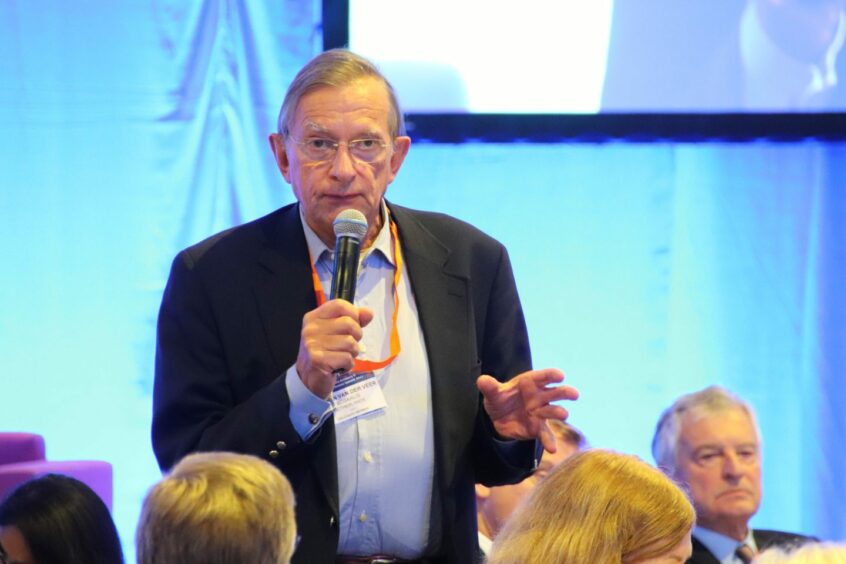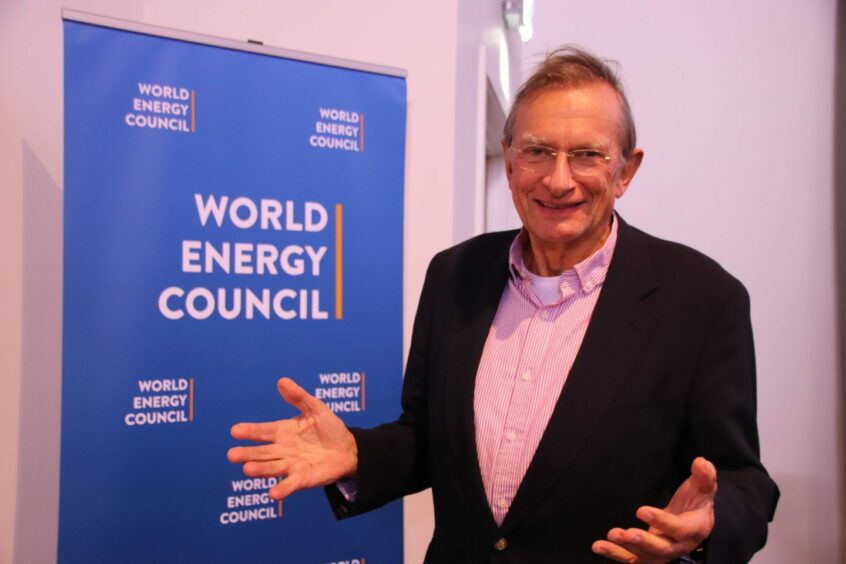
A former chief executive of Shell told Energy Voice that the industry needs to focus on educating the public and politicians on the complexities of the sector, and use its people as “ambassadors”.
Speaking on the sidelines of the World Energy Council’s ‘Energy Trilemma Summit; Jeroen van der Veer said that to successfully navigate the energy transition, people must have an understanding of the energy industry and see stability in it.
The former Shell boss – now a board chairman of Royal Boskalis – said: “The danger is that there is enough money in the world for investment, but maybe people don’t invest in the energy industry.”
He stressed the importance of long-term stability to ensure investment – not just in the North Sea, but in other energy transition projects.
“To attract private investment in the North Sea or even at building nuclear power stations, there need long-term pathways which you can’t change every four years. You can tweak them, that is fine.”
Van der Veer proposed that the energy sector use the press more to help educate and guarantee the availability of funding.
“It is not always attractive to be in all kinds of talk shows or podcasts, being on social media or giving interviews to all kinds of magazines and papers, but in the end, many people have to help to explain the complexities and I think we should use our own employees in the industry. ”
He urged energy firms to use their own people as “ambassadors” in order to encourage public trust in the sector to speed up the transition.
To encourage trust Jeroen van der Veer suggests ensuring job security throughout the transition.
“You install a platform or you install a large windmill, there are a lot of similar capabilities.
“Having said that, there are other jobs where you have either to retrain the technical people or you have to train them at technical schools or even the universities, how to do efficiency maintenance on those high windmills.
“So, I think those be very attractive jobs, but that should be part of the communication methods as well.”
Going green
When asked about the energy transition and recent reports that Shell will be reducing its emissions for the first time in company history this decade, the former boss worried he would sound like “those old guys sitting in the Muppet Show on the balcony.”
However, he did praise the firm he was once at the helm of, noting that Shell’s Powering Progress plan is “not super detailed, but it is a real plan.”
“They map out a path and they say very clearly, in order to achieve that, we have to cooperate with others, meaning governments, but also, of course, consumers. If they continue their demand for fossil fuels that will complicate matters.”
Explaining that this is a “much better plan than when I was CEO”, van der Veer gave props to the energy giant.
Looking at the short and long term

With rising fuel costs, affordability makes up one of the three pillars of the energy trilemma, in order to look after the consumer van der Veer believes policy should “look at what have we to do in the short term and what to do for the long term.”
“Now the only thing you can do as a government is try to impose price caps. Short term they may work, in the longer term they will not work or you have to subsidise people – but if you do, you have to get the money from somewhere.
“You can do that by taxation, for instance, those companies who make a lot of additional profit if they really make surplus profits or you have to print money, so it will never be an easy choice, but you have to do something.”
This was said less than a week before the recently appointed chancellor of the exchequer, Jeremy Hunt, announced that it will be reviewing the energy price cap in April.
Recommended for you

 © Supplied by World Energy Council
© Supplied by World Energy Council